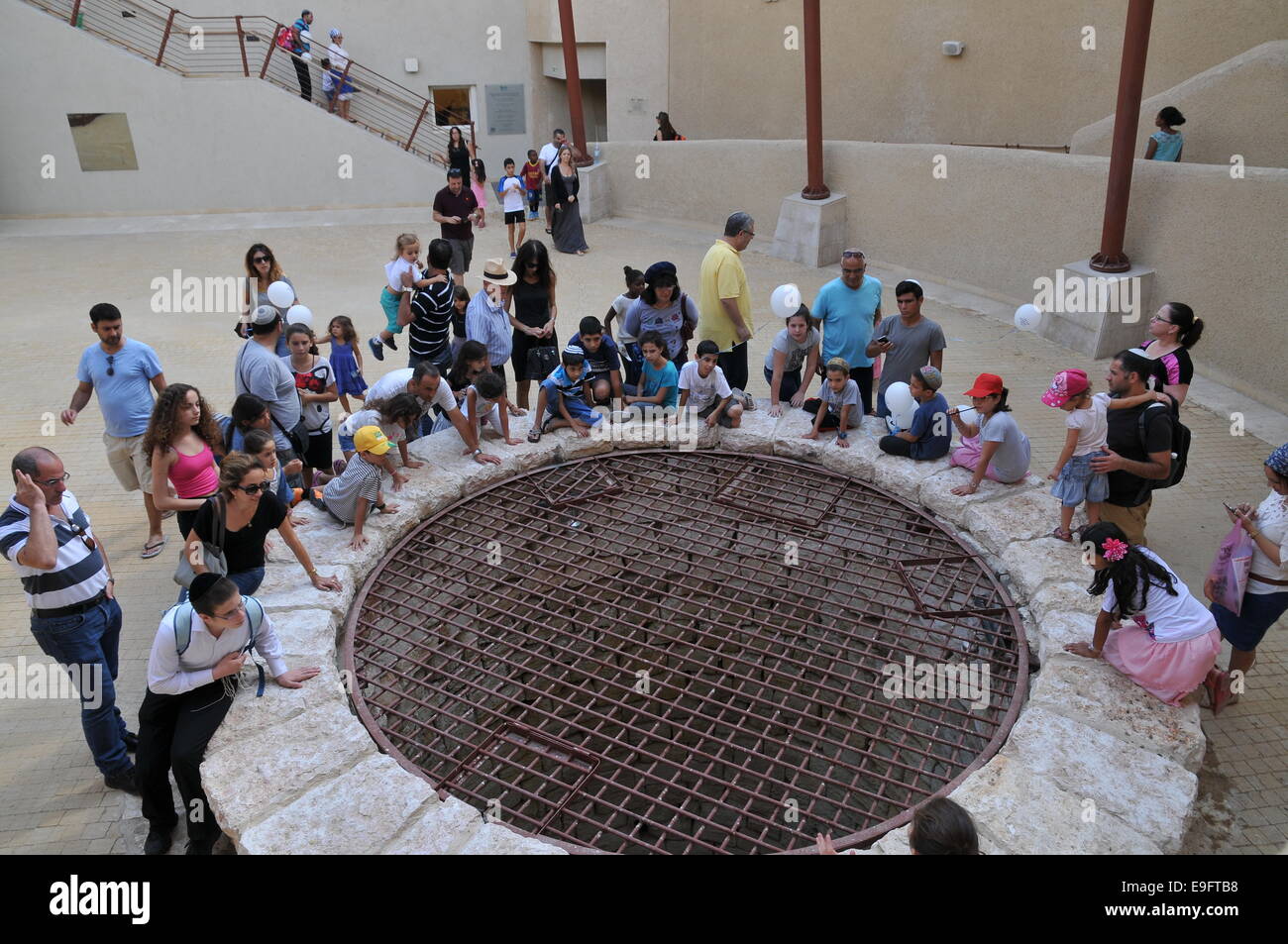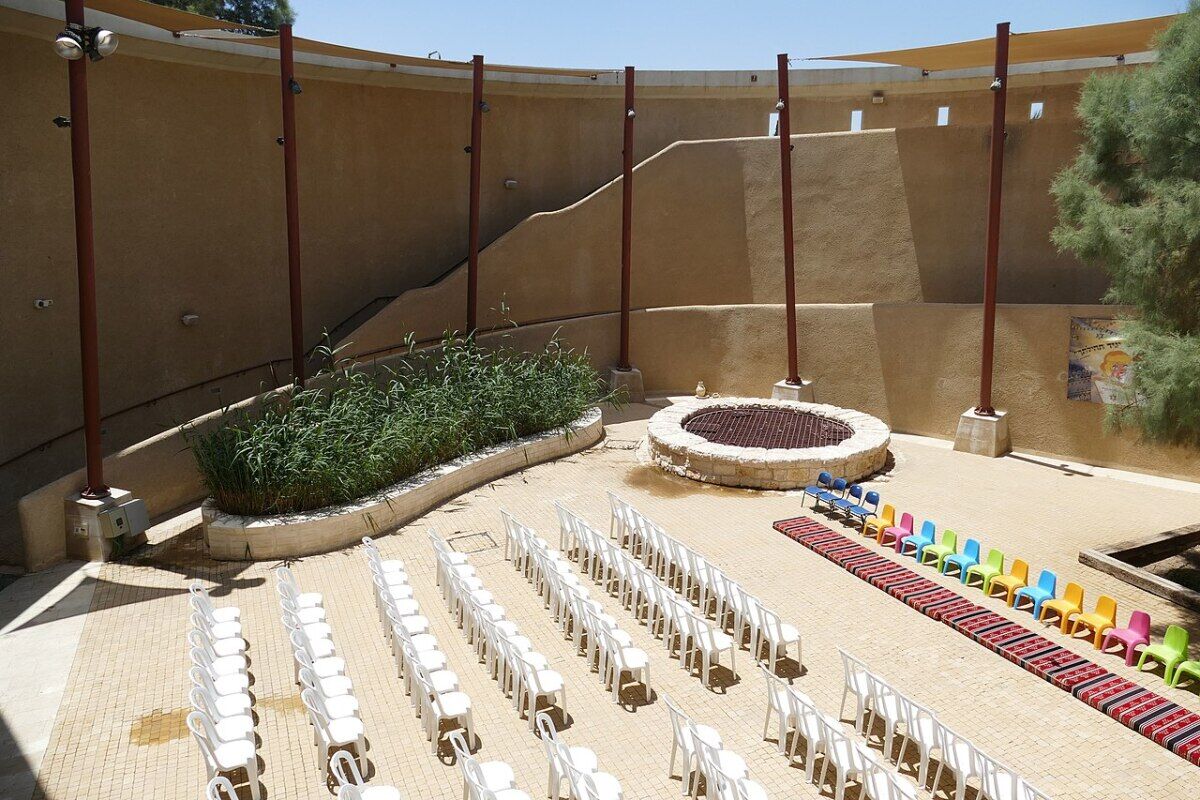Can a single well truly hold the echoes of millennia, the whispers of faith, and the genesis of a city? Abraham's Well in Beersheba, Israel, stands as a testament to this very idea, a place where history, religion, and the simple act of digging for water converge, shaping not just a location, but a narrative.
The story begins, as many pivotal tales do, with a dispute over a vital resource. According to the Hebrew Bible (Genesis 21:25), Abraham's well was initially seized by the men of Abimelech. Later, Isaac, Abraham's son, also found himself embroiled in conflicts with the Philistines over his right to these life-giving waters (Genesis 26). This well wasn't merely a source of sustenance; it was a symbol of ownership, a cornerstone of survival in the arid landscape of the Negev. The well's proximity to the old city of Beersheba and the Nahal Be'er Sheva wadi, along the road to Neve Noy, places it geographically at the heart of this historical drama.
| Category | Details |
|---|---|
| Name | Abraham |
| Birth | Traditionally placed in Ur of the Chaldees |
| Death | Unknown, but associated with the land of Canaan |
| Key Role | Patriarch, foundational figure in Judaism, Christianity, and Islam |
| Significant Deeds | Made a covenant with God, father of Isaac (and Ishmael), known for his faith and obedience |
| Historical Context | Lived during the Bronze Age, a period of significant social and technological changes in the Near East. |
| Religious Significance | Considered the father of monotheism, a pivotal figure whose actions and beliefs are central to the theological understanding of the three Abrahamic religions. |
| Legacy | His legacy includes the establishment of monotheism, his role in the covenant with God, and his example of faith, obedience, and hospitality. |
| Cultural Impact | Abraham's story has shaped law, ethics, and social norms across the globe and inspired countless works of art, literature, and music. |
| Link to Further Information | Encyclopaedia Britannica - Abraham |
The site, identified in the 19th century by Edward Robinson, has been carefully preserved and developed. Today, the Abraham's Well International Visitor Center, located near the well, offers an immersive experience, transporting visitors into the biblical history of Beersheba. The modern center, opened in 2013, includes an information center, exhibits, and a 3D movie that brings the story of Abraham to life. The location, at Derekh Hebron 2, Beersheba, Israel, is easily accessible and a must-visit for anyone interested in the history of this region.
- Text 90999 For Red Cross Donations Info Your Guide
- Yin Yang Koi Fish Meaning Symbolism Tattoo Ideas Explained
The very name "Beersheba" is rooted in the Hebrew words "be'er," meaning "well," and "sheva," meaning "to swear an oath." This etymology immediately connects the city to the importance of the well, and the well itself became a symbol of covenants and agreements. In the context of the Bible, Beersheba is first mentioned in Genesis as the location where Abraham forged a covenant with Abimelech, the Philistine king of Gerar. This act, and others like it, solidified the well's significance, not just as a source of water, but as a place of agreement and shared understanding, fostering peace in an otherwise hostile environment.
Beyond the historical and religious significance, the well also played a crucial role in daily life. Wells were central to social gatherings, and, in Abraham's day, they even served as a place where future marriage partners could meet. The Bible offers several examples of this, including the encounters of Isaac and Rebekah, Moses and Zipporah, and Jacob and Rachel. These stories add another layer of meaning to the well, revealing its role as a meeting place, a site of life, and a setting for the most important human connections.
The historical timeline of Beersheba reveals its transformation. Originally established by Abraham and his son Isaac, it became a central place for the entire Negev region. After being taken by Israeli troops in 1948, the city evolved into a center of industry and technology, yet it still kept its link to the past. The location of Abraham's Well continues to be an open site, inviting visitors to reflect on the stories and significance of the area.
- Fashion Runway Models Behind The Scenes Top Trends
- Disneys New York A Look Inside Its New Headquarters History
The narrative of Beersheba also includes the Tel Be'er Sheva National Park, situated east of the modern city. Designated as a UNESCO World Heritage site in 2005, this park adds another layer of depth to the historical experience. The archaeological site is an important place of discovery, dating back nearly 2000 years before Abrahams time, and holds unique insights into the region's early history.
In the archaeological world, Beersheba is also known for two unique ivory figurines from the Eneolithic period, discovered on the banks of the Beer Sheva stream, indicating that a civilization existed nearly 2000 years before Abrahams time. This reinforces Beersheba's importance as a place of continuous human activity, tracing back thousands of years, and its role as a crossroads of civilizations. The presence of these figurines indicates Beersheba's role as a center of culture and art, far exceeding what we learn from the Abrahamic narratives. This makes a visit to the city a truly comprehensive history lesson, with a multi-dimensional understanding of the past.
The area surrounding Abrahams Well further expands the experience. Its not just the historical core that is important; the journey is key. The well is near the old city of Beer Sheva and Nahal Beer Sheva, on the road to Eilat. One can walk through a virtual display dedicated to the life of Abraham and see a 3D movie that immerses visitors in his world. A tamarisk tree stands next to the well in memory of Abraham's tree, which was planted here, creating a tangible link to the biblical past.
There are dozens of ancient wells around the area of Be'er Sheva, however, the local Bedouin have maintained a tradition about one particular well being the original well dug by Abraham. This oral history and local tradition continue to enrich the experience, reminding us of the importance of preserving and valuing all perspectives on the past. While the modern visitor center and archaeological sites provide academic insight, these stories passed down through generations also play a vital role in keeping the history of the site alive.
The importance of Abraham's Well is that it offers an opportunity for dialogue about values, faith, and history shared by many cultures. The site's immersive experiences and exhibits create an environment for reflection and understanding. For those seeking a deeper exploration, the Abraham's Well International Visitors Center is an archaeological museum and convention center in Beer Sheva, Israel, that opened in 2013 on the site of the well, allowing visitors to discover the city and the well in detail.
The well is not just a relic of the past. It's a place where different cultures, religions, and generations can converge, finding common ground in the search for water, faith, and shared heritage. It is a constant reminder of the enduring power of the past, and its continuing relevance in the modern world.



Detail Author:
- Name : Jackie Johnston
- Username : stamm.heath
- Email : adam19@gmail.com
- Birthdate : 2003-04-21
- Address : 4345 Cristal Lock Apt. 266 West Karina, AL 39902-8252
- Phone : +1-407-407-3879
- Company : Aufderhar-Dare
- Job : Recreation Worker
- Bio : Sint voluptatem aut illum dolorem repellendus doloremque commodi. Quia deleniti unde earum eos laborum qui nostrum aut. Praesentium doloribus ipsa delectus qui.
Socials
instagram:
- url : https://instagram.com/baumbache
- username : baumbache
- bio : Qui delectus nostrum deleniti beatae. Quo et corporis rem sed libero voluptates.
- followers : 1565
- following : 1410
linkedin:
- url : https://linkedin.com/in/elouise.baumbach
- username : elouise.baumbach
- bio : Quam et totam iste occaecati.
- followers : 665
- following : 1422